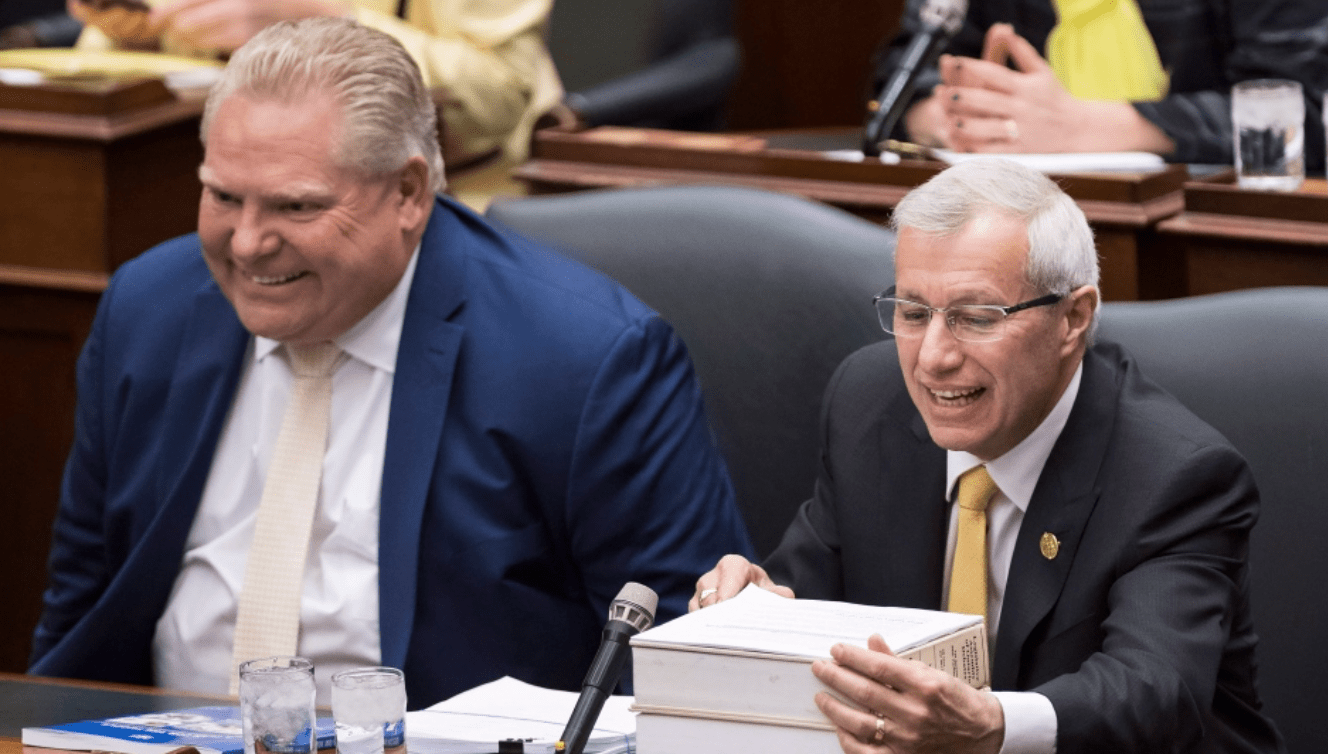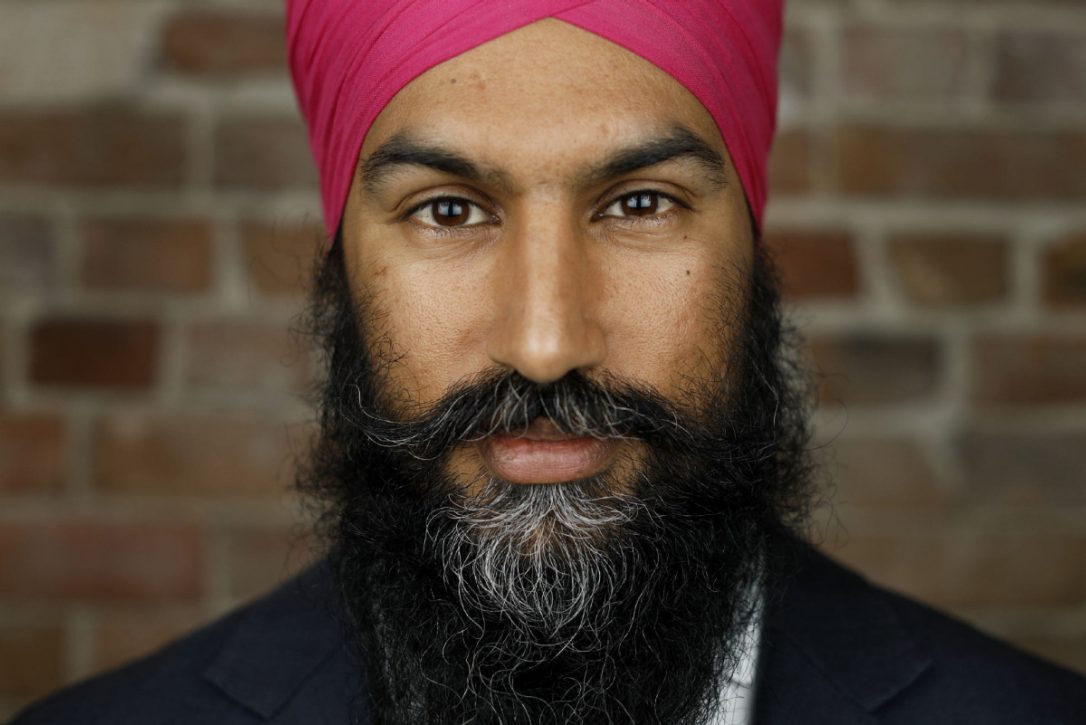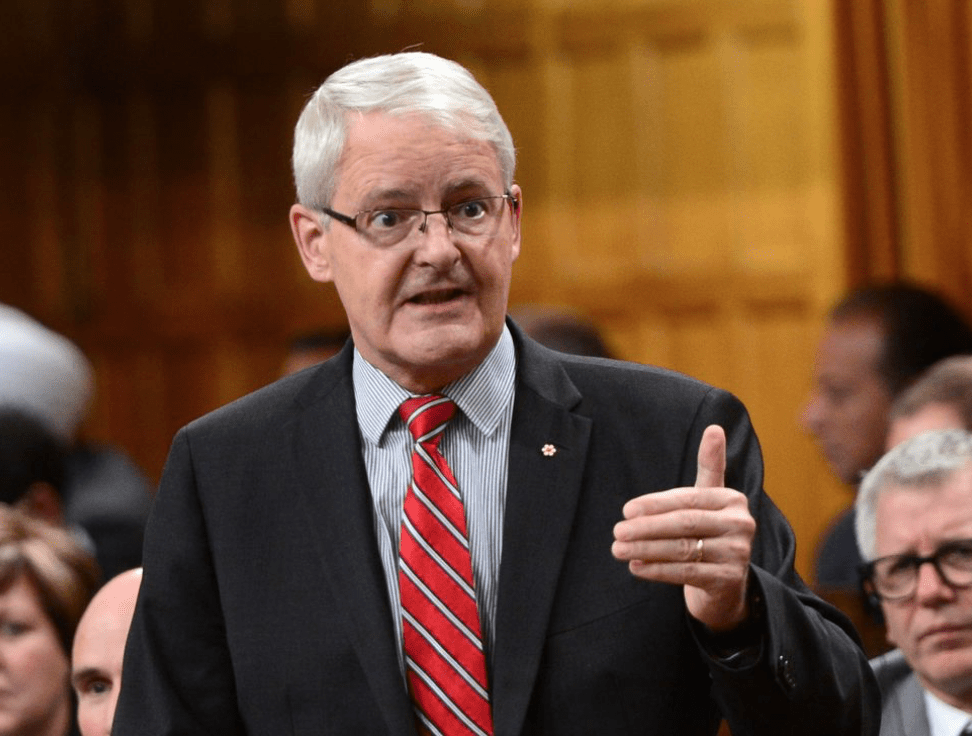The NDP are the kind of party who don't just hope lightning will strike twice. They practically count on it.
At a time when everyone is fixated on, or at least vaguely aware of, the sideshow in Ottawa, and when federal Opposition leaders are shooting the moon calling for resignations and public inquiries, the Ontario NDP decided to blow the entirety of whatever political capital they've managed to gain in less than a year by calling for their very own fulsome and noisome public inquiry, even as literally nobody outside of possibly Ron Taverner himself is protesting his own treatment and lots of people are protesting the Ford government's treatment of parents of autistic kids.
How the NDP came to the conclusion that the voters could keep track of two independently moving public inquiries at once is beyond me, unless they simply decided that everyone hates Ford as much as they do and decided that they would lose more credibility if they just let Ford fuddle-duddle up something as simple as appointing an OPP commissioner. They could have told voters, "If you think this is bad, just wait for him to really screw something up!" and then pounce as soon as he does, but would they ever get the chance to use a cute hashtag like #Tavscam again?
Obviously I bring up the NDP's conduct here because I'm in the tank for the PC's, right? Sure, you can draw that conclusion and be done with it, or you could realize that two things can be true at the same time. To wit, there is the large body of evidence, accumulated by dedicated Fordologists over what is approaching a decade, that Doug Ford has a tendency to micromanage and value loyalty over competence. And it is also true that the NDP, and some of those dedicated Doug-watchers who really should know better, have gravely misread what the voters want and expect from Ford.
The fact is that, as much as the NDP would like it to be true, the PC's and the federal Liberals are not the same people. That's why the SNC-JWR-WTF-OMG-LOL scandal has crowded out everything else, even the Mark Norman affair (you know, that OTHER massive Liberal scandal.) The public really do or did, anyway believe that Justin Trudeau is this demigod who was destined to save Canada. Now that that is obviously not true anymore, the disappointment is real and palpable. Doug Ford, on the other hand, is nobody's hero. He was never marketed to the public that way, and I don't think he even likes being portrayed that way.
Because he did not appear on the cover of Rolling Stone, gallivant around the world proclaiming himself to be humanity's conscience, or try to set himself up as some laughable example of trans-racialism by dressing up like an Indian bridegroom, Doug Ford is benefiting from Justin Trudeau more than Justin Trudeau could ever benefit from Doug Ford. It is literally as simple as Trudeau not being able to live up to the lofty standard he set for himself, which was also the standard he appeared to set for his political opponents.
It helps (more than it hurts) that Ford has simply been able to appoint another commissioner, and that the Taverner affair doesn't rip the Band-Aid off a gaping wound on the Canadian soul namely, the reconciliation process with First Nations the way Trudeau's alleged pestering of Jody Wilson-Raybould did.
Then there's the fact that Trudeau and his cadre of shamrock-bearing supporters can't even do the one thing that the Prime Minister is supposed to be worlds better than everyone else at look good. Trudeau is supposed to be polished to the point of intimidation, but he's never looked or sounded as unready as he has been these past few weeks. And if he were to mount a spirited defence of his actions, Chretien style, or Ford style, it would help him a lot more than his current strategy of sounding like Coach Z from Homestar Runner as he repeats the word "jobs" endlessly.
Justin Trudeau is the prideful man undergoing a fall. Doug Ford is the buffoon slipping on a banana peel. Neither is good. But only one is going to elicit anger and calls for punishment.
Written by Josh Lieblein










